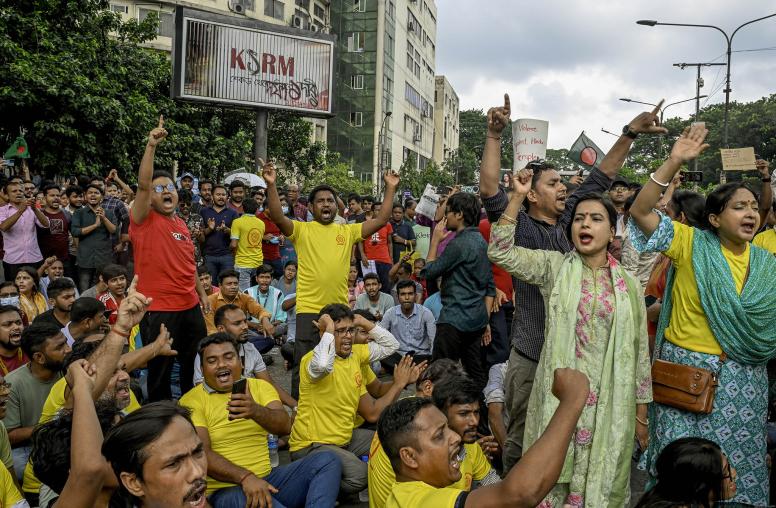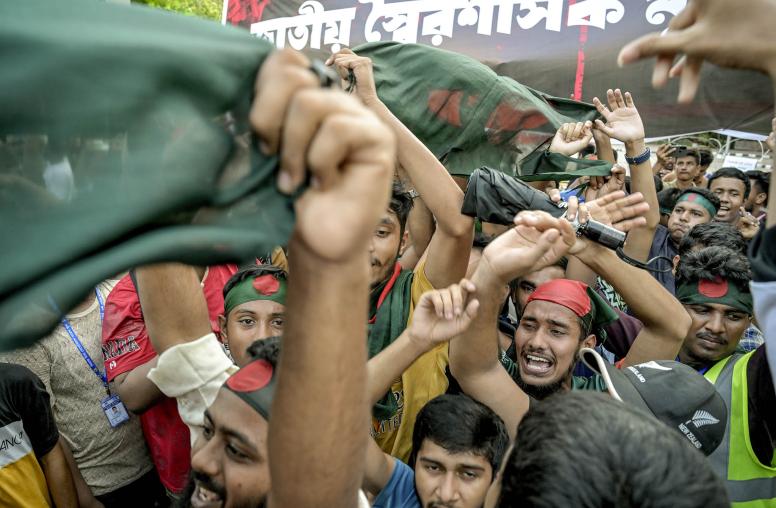 Bangladesh
Bangladesh
Featured Research & Analysis

Six Months After the July Uprising, Bangladesh’s Democracy Lurches Forward
Six months after Bangladesh’s repressive Awami League (AL) government was overthrown in a student-led uprising, Bangladesh’s democratic reformation is entering a critical phase. The reform commissions setup by Muhammad Yunus’s interim government (IG), which took power on August 8, are set to release their recommendations for dramatic changes to the country’s democratic institutions. Under Yunus’s stewardship, political parties and student leaders will now sit to forge a consensus on what reforms to pursue and when to hold elections. A breakdown of these negotiations would blunt momentum toward much-needed reforms and could tilt the country into political chaos.

Tamanna Salikuddin on What’s Next for Bangladesh's Democracy
After protests forced longtime Prime Minister Sheikh Hasina to resign earlier this month, Bangladesh’s new interim government is “seeking, at this moment, to grasp that democratic spark” and “set forward the reforms that are going lead to a new political culture” in the country, says USIP’s Tamanna Salikuddin.

Bangladesh’s Revolution Remains Unfinished
On August 5, a student-led revolution toppled Bangladesh’s increasingly repressive prime minister, Sheikh Hasina. After 15 years in power, her government’s sudden and improbable collapse creates the possibility for a new era in Bangladesh. Democratic champions are reinvigorated, but instability and violence will grow in the near term and countervailing forces will likely emerge to blunt progress. Bangladesh’s revolutionary moment is not yet a revolution. Only sustained and deliberate political reform can finish what the students started. The United States can help.